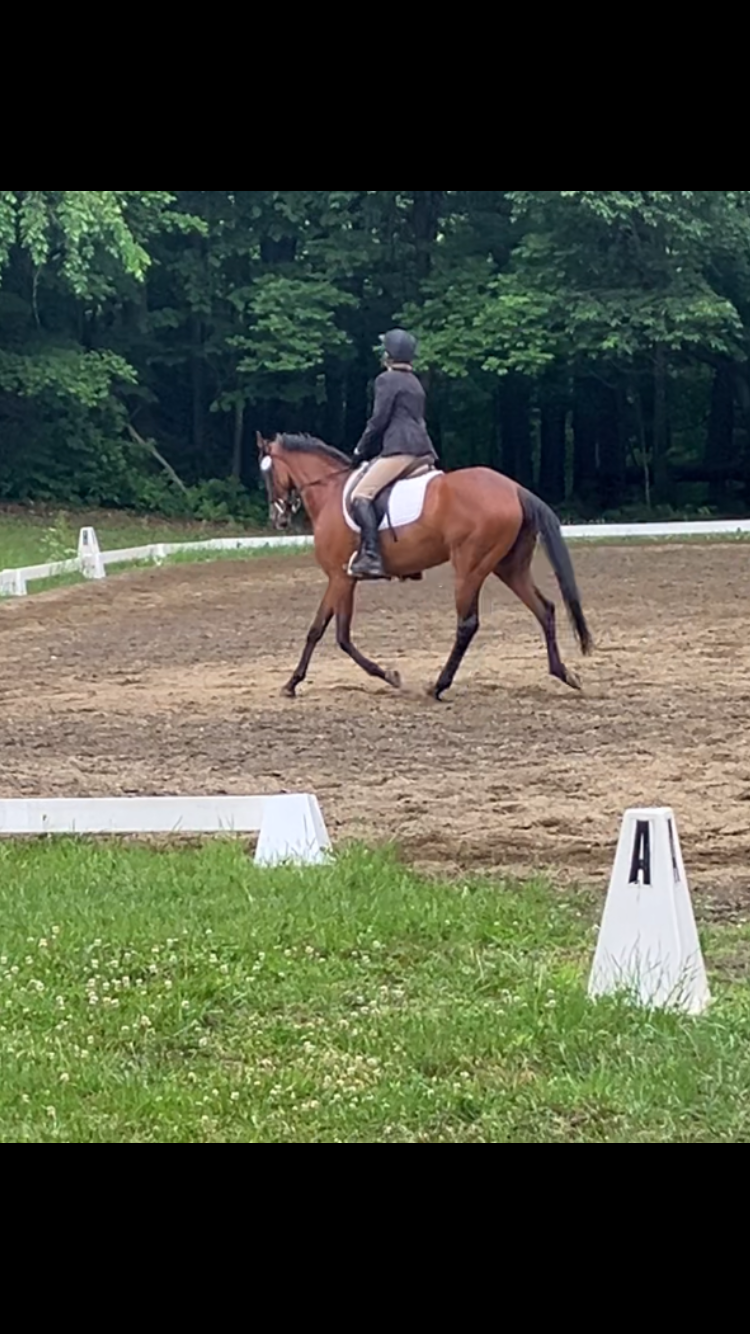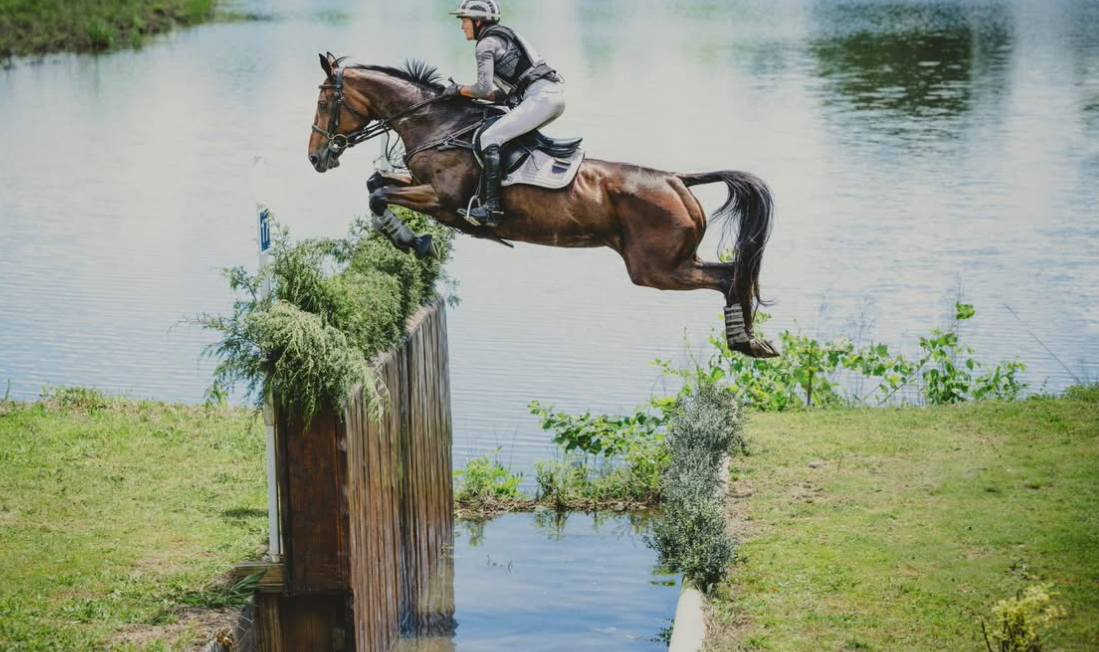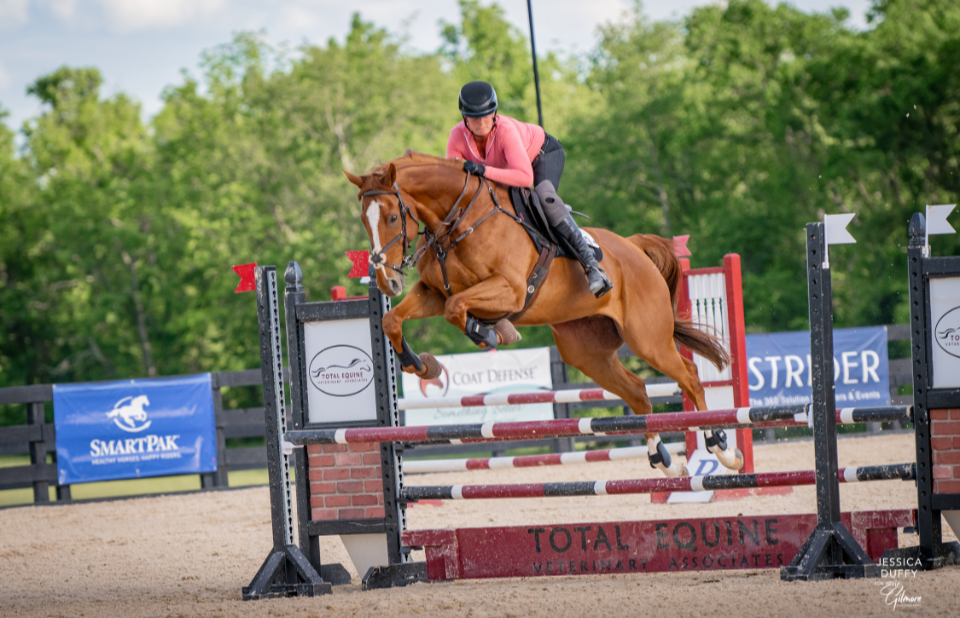Simply put, Europe is really good at producing event riders. The economic, geographical, funding, competitive, ownership, and sponsorship circumstances in Europe create a fertile environment for growing young eventers. At the same time, the economic pressures on our best developing riders in the US is making it harder and harder for them to travel to Europe to train for an extended period of time. As an aside, I think we will see a return to Europe from at least a couple of our top rider this spring and summer. To give everyone a taste of Europe, an EN reader and eventer, Erin Feedman, has just returned to the US after spending 10 months with Germany’s Ingrid Klimke, and she has generously written about her experience for Eventing Nation. Thanks for writing this Erin and thank you for reading.
—-
From Erin:
At 25 years old, I was at a crossroad in my career. Since I had competed at upper levels competitions in eventing and competed at the FEI level in dressage, both eventing and dressage were destined to be an important part of my burgeoning equestrian career. After college, I had a rewarding learning experience as a working student, and I was privileged to build my own client base as a dressage and eventing trainer. Through these experiences I became determined to ride, train, and compete in both disciplines professionally. I then had to ask myself how to best reach my goals; Should I start my own business? Find an assistant trainer position? Go to Europe?
I decided that if I wanted to be at the top of my disciplines, I should learn from someone who was already at the top. Ingrid Klimke had been my hero for as long as I could remember–and she is arguably one of the best multi-disciplined athletes in the world. An internationally ranked 3 day event rider and dressage rider. Though I knew getting any position in Ingrid’s barn would be extremely competitive, I sealed my resume and video up in an envelope and sent it on its way to Germany. I was lucky enough to have some wonderful friends who were able to make sure that my application made it into Ingrid’s hands. 
 To my delighted surprise, Ingrid invited me to Münster for a ten day riding interview. The interview was tough, and Ingrid really tested my mettle on some challenging horses, but in the end I was accepted into her program to be a part of Team Klimke for ten months. I had one month to go home and pack up my life for the move to Germany. While it was a no-brainer to accept the position at Ingrid’s, it was extremely hard to leave behind my talented up-and-coming young event horse who had just won her first one star. I also had to sell my FEI dressage horse who had been with me for 13 years. Though he went to a great new owner, he had been with me since he was six months old. Thankfully, I was able to put everything in order on time, and I headed off to Münster with a few pairs of breeches and my faithful dog Zhoe.
Ingrid was more wonderful in person than I could have ever imagined, and what I learned from her has greatly impacted my training methods and style. She is surrounded by wonderful people and horses–a true testament to her character. There are several aspects of her program that I think are important in training the well rounded, schooled and conditioned event horse.
First, for Ingrid, it is important that every horse in her barn has a cross-training element to their program. For example, many of the pure dressage horses would be taken over jumps or ridden around the fields once a week, while the eventers were schooled like dressage was their sole discipline on their dressage days. Further, instead of only taking her eventers to combined training competitions, she takes them to dressage shows and jumping shows regularly, where they can continue to improve each aspect of the three-day event. These strategies allowed the horses to be able to focus on each aspect of the event, because their competition experience wasn’t limited to the event schedule, which the horse can learn to anticipate. This way, the horse and rider develop the mentality to ride each phase individually.
Secondly, in Germany there are special competitions that only involve a cross-country course. These competitions allow developing event horses to become comfortable with the cross-country questions that will be asked at their level. At these competitions the young horse does not have to deal with the other aspects of an event. While we do not currently have access to these exact types of competitions in the states, it can still be useful to create the same situation in order to build confidence in young event horses in the same way that confidence is built through Ingrid’s multi-disciplinary approach.
Finally, Ingrid carries on the cavaletti system from her father, the great Reiner Klimke, in order to enhance the rideabililty of her horses. Ingrid uses cavaletti for her dressage and event horses to encourage forward and upward training. Various cavaletti exercises can be helpful in working on tempo, flying changes, balance, engagement from the hind-quarters, and evenness. The focus on evenness through cavaletti exercises is especially important because not only is evenness a vital aspect of dressage, but it also positively effects control and precision in the jumping phases.
Now that I have returned to the states, I am excited to put these training methods to good use as I continue with my own business, EBFSporthorses. I am fortunate and grateful to have received the opportunity to learn from Ingrid Klimke, and I look forward to maintaining my relationship with Team Klimke in the future.






















